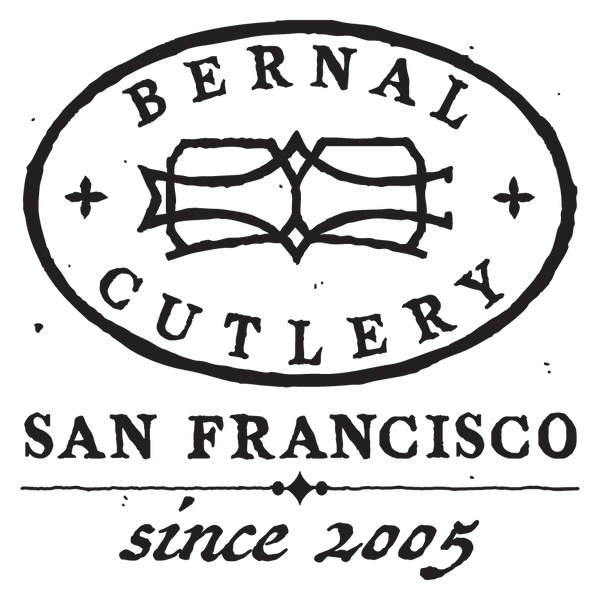-
Kitchen Knives
-
Bernal Cutlery House & Collaborations
- Greenfield Series
- Bernal Cutlery Black Label
- INVICTUS - K Sabatier | Butcher's Guide
- Nouvel Ideal - K Sabatier
- GS+ Ko Sabaki - Konosuke
- Small Chef - Rolin Knives
- Stainless Clad - Tosa Tadayoshi
- Knife Rolls - ILE
- Pizza Cutter - F+W | Prince
- Sakai Style - Blenheim Forge
- Sori Series - Sakai Kikumori
- Kurouchi - Nakagawa | Sakai Kikumori
- Shop by Use
- Shop by Shape
- Shop by Category
-
Shop by Maker
- Ashi Hamono
- Astral Works
- Au Nain
- Au Sabot
- AZ Knives
- Bernal Cutlery Manufactory
- Blenheim Forge
- Chazeau Honore
- Eichenlaub
- Florentine Kitchen Knives
- Friedr. Herder
- Gihei Knives
- Goyon-Chazaeu
- HADO
- Hatsukokoro
- Hitohira
- J Adams
- John Nowill & Sons
- K Sabatier
- Kaji Bei
- Kanehide
- Kenji Togashi
- Kogetsu
- Konosuke
- MAC Knife
- Masakane
- Morihei
- Mutsumi Hinoura
- Myojin Naohito
- Néron
- Naozumi
- Nigara Hamono
- Pallares
- Roland Lannier
- Rolin Knives
- Sakai Kikumori
- Satoshi Nakagawa
- Seki Kanetsugu
- Tagai Sanjo
- Tanabe Tatara
- Tosa Tadayoshi
- Tosa Tsukasa
- Tsukasa Hinoura
- Wakui
- Yoshikane
- Knife Storage
- Sayas & Guards
- Knife Care
- Trade In
- Bargain Bin
-
Bernal Cutlery House & Collaborations
- Knives & Tools
- Sharpening
-
Kitchen Tools
-
Shop by Brand
- Ambrogio Sanelli
- Andre Verdier
- Ateco
- Au Nain
- Chefs Press
- Due Buoi
- Dexter Russell
- F. Dick
- Geo Yukio Hattori
- Gestura
- Hardmill
- Hitohira
- Inside Line Equipment (ILE)
- Jones Cutting Boards
- Kagetsu Donabe
- KYOTOH Donabe
- Kuramoto
- Lancaster
- Lundy Way
- MAC Knife
- Made In
- Netherton Foundry
- Noda Horo
- Nordic Ware
- Pallares
- Peugeot
- Prince
- Silky
- SILPAT
- Shop by Use
- Cookware by Material
- Cookware by Type
- Prep Tools
- Cutting Boards
- Utensils
- House & Kitchen Scissors
- Softgoods
- Chef's Press
- Cleaning Supplies
-
Shop by Brand
- Tableware
- Vintage
- Pantry
- Books & Gifts
- Services & Info
or
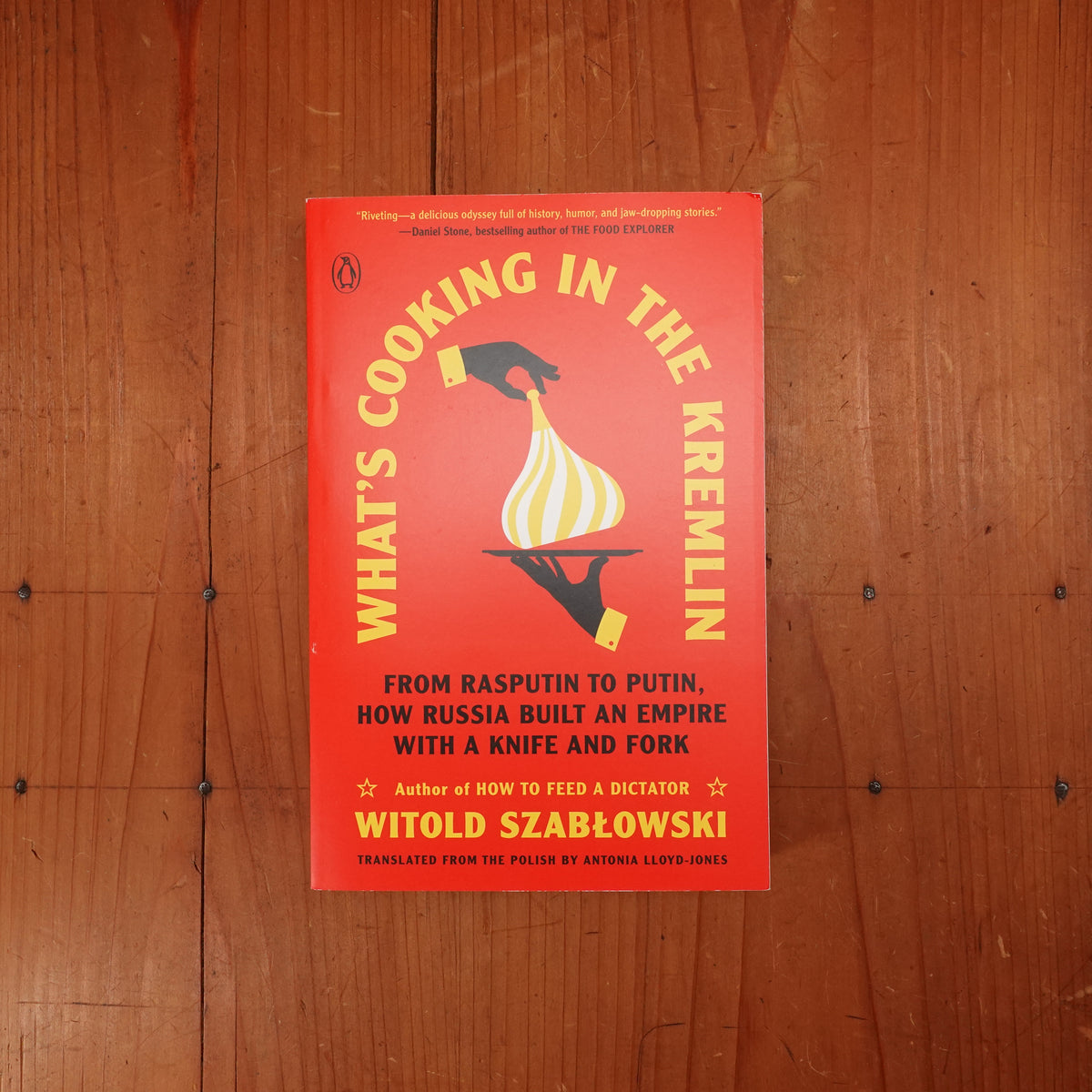
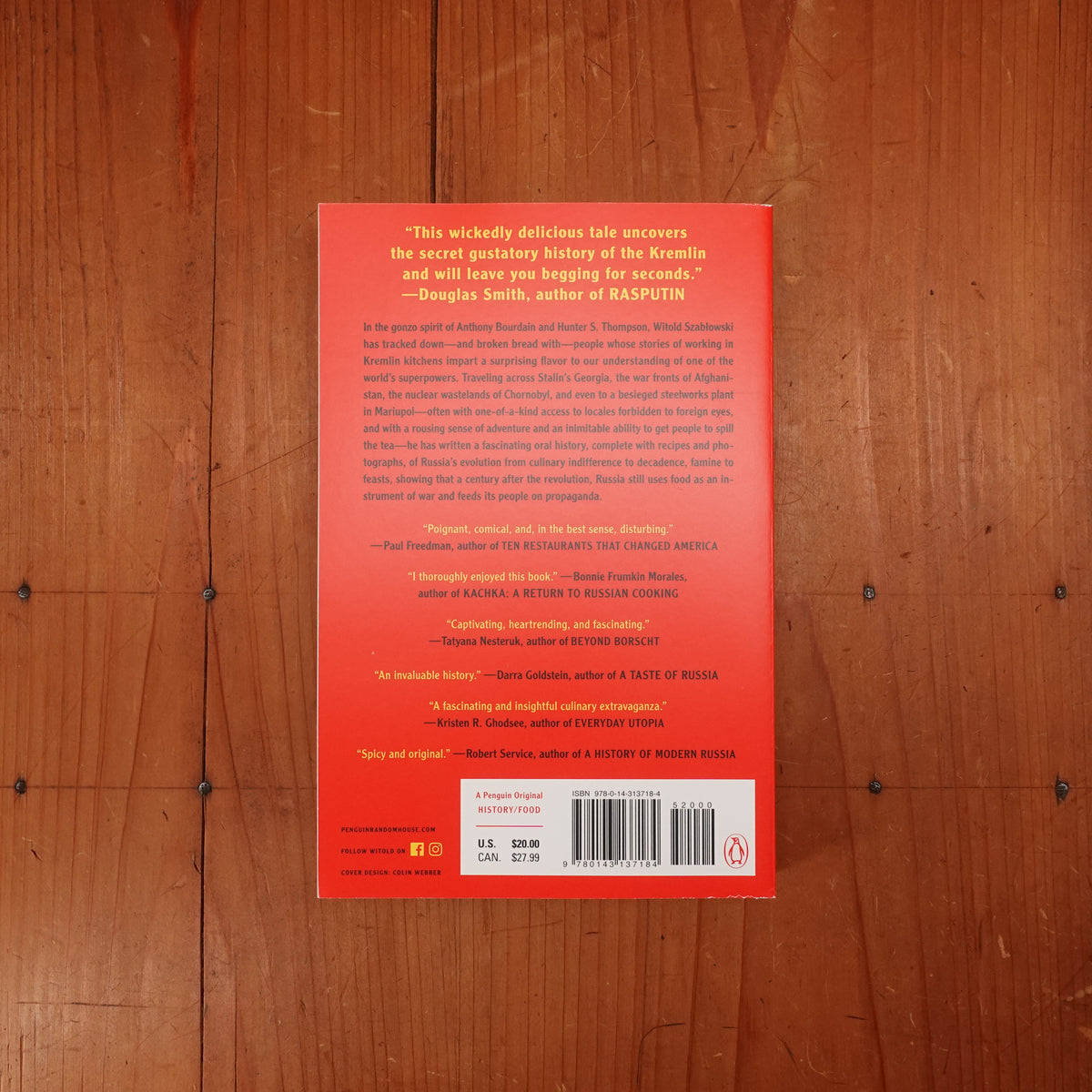
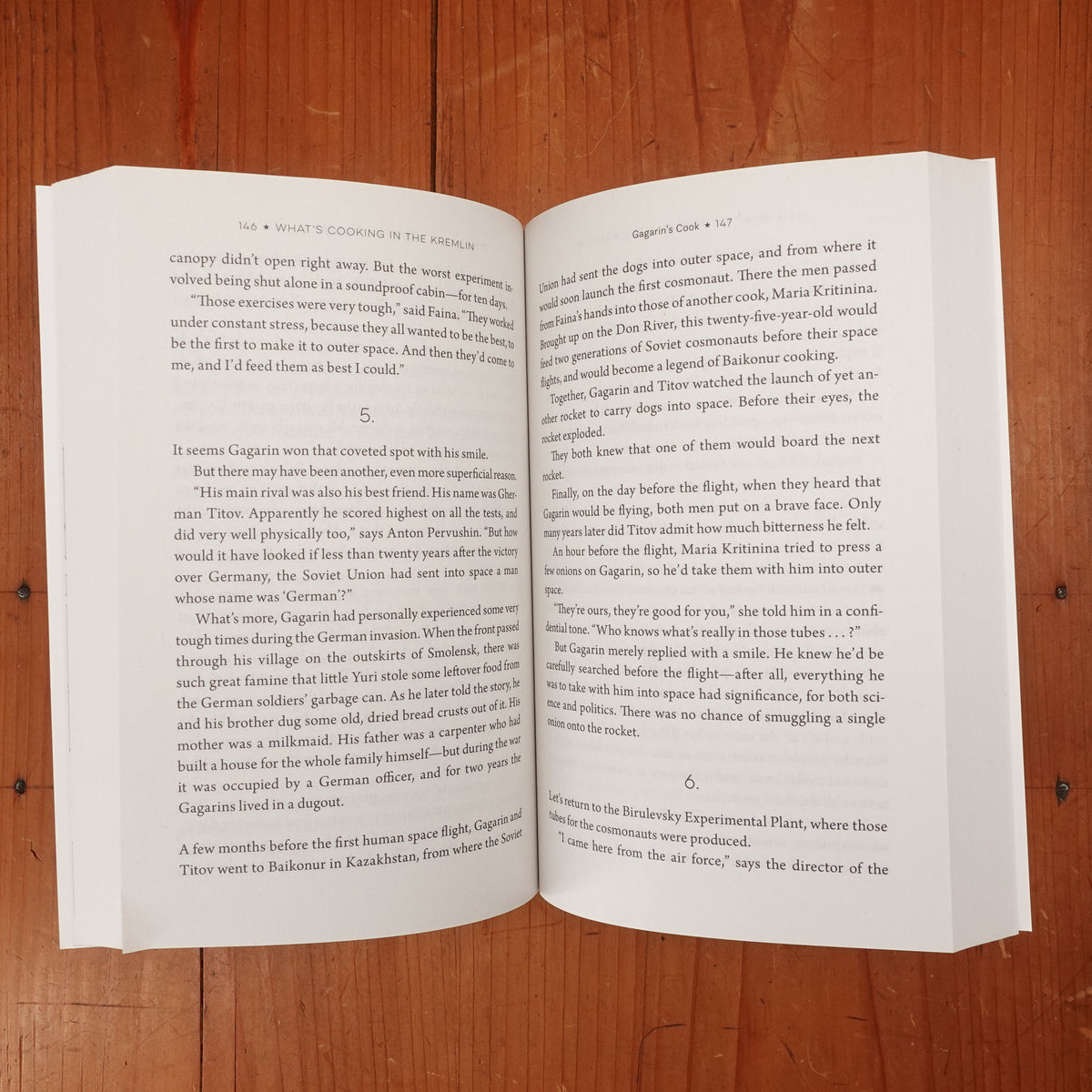
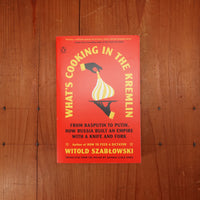
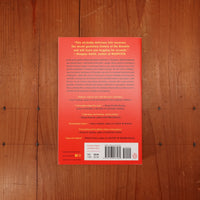
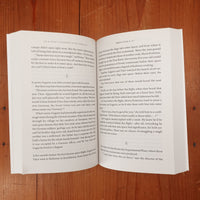
What's Cooking in the Kremlin: From Rasputin to Putin, How Russia Built an Empire with a Knife and Fork - Witold Szablowski
-
Regular Price
-
€17,33
-
Sale Price
-
€17,33
-
Regular Price
-
Sale
Sold Out
-
Unit Price
- /per
- Regular Price
- €17,33
- Sale Price
- €17,33
- Regular Price
- Unit Price
- /per
“Entertaining . . . A heady mix of propaganda and paranoia . . . [Szabłowski writes] sensitively . . . not just about food but also its terrible absence.” —The New York Times Book Review
“Riveting—a delicious odyssey full of history, humor, and jaw-dropping stories. If you want to understand the making of modern Russia, read this book.” —Daniel Stone, bestselling author of The Food Explorer
A high-spirited, eye-opening, appetite-whetting culinary travel adventure that tells the story of the last hundred years of Russian power through food, by an award-winning Polish journalist who’s been praised by both Timothy Snyder and Bill Buford
In the gonzo spirit of Anthony Bourdain and Hunter S. Thompson, Witold Szabłowski has tracked down—and broken bread with—people whose stories of working in Kremlin kitchens impart a surprising flavor to our understanding of one of the world’s superpowers.
In revealing what Tsar Nicholas II’s and Lenin’s favorite meals were, why Stalin’s cook taught Gorbachev’s cook to sing to his dough, how Stalin had a food tester while he was starving the Ukrainians during the Great Famine, what the recipe was for the first soup flown into outer space, why Brezhnev hated caviar, what was served to the Soviet Union’s leaders at the very moment they decided the USSR should cease to exist, and whether Putin’s grandfather really did cook for Lenin and Stalin, Szabłowski has written a fascinating oral history—complete with recipes and photos—of Russia’s evolution from culinary indifference to decadence, famine to feasts, and of the Kremlin’s Olympics-style preoccupation with food as an expression of the country’s global standing.
Traveling across Stalin’s Georgia, the war fronts of Afghanistan, the nuclear wastelands of Chornobyl, and even to a besieged steelworks plant in Mariupol—often with one-of-a-kind access to locales forbidden to foreign eyes, and with a rousing sense of adventure and an inimitable ability to get people to spill the tea—he shows that a century after the revolution, Russia still uses food as an instrument of war and feeds its people on propaganda.
About Bernal Cutlery
We are a full-service cutlery shop offering sharpening services, Japanese and Western culinary knives, vintage knives, outdoor, pocket and craft knives, cooking tools and accessories. We also offer knife skills and sharpening classes, and more.
We are proud to serve kitchen professionals, knife enthusiasts and home cooks alike. Located in the Mission District of San Francisco, California.
766 Valencia Street, SF, CA 94110
1 Ferry Building, Ste. 26, SF, CA 94110
